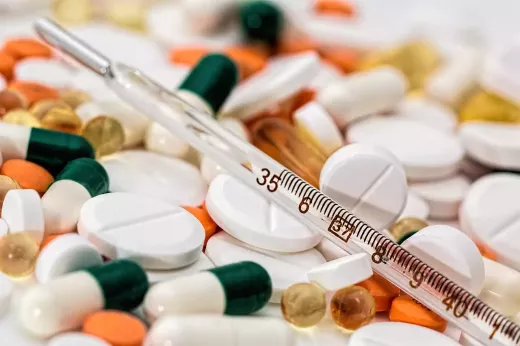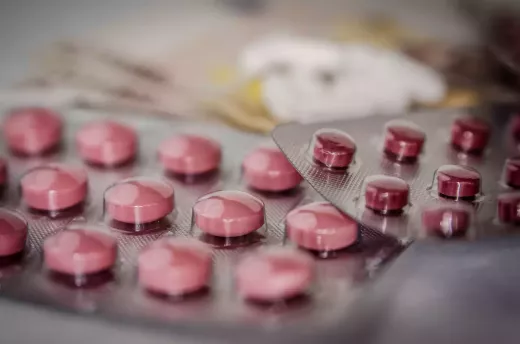Understanding how Cialis works
Cialis is a medication that contains a drug called tadalafil. This drug works by increasing blood flow to the penis, allowing you to achieve and maintain an erection when you're sexually stimulated. Unlike other ED medications, Cialis can last up to 36 hours, which means you can take it well in advance of sexual activity. However, it's important to note that Cialis doesn't work on its own. You still need to be sexually stimulated to achieve an erection.
Importance of discussing with a healthcare provider
Before you start taking Cialis, it's essential to talk to your healthcare provider. Your doctor can help you determine whether Cialis is the right medication for you and what dosage you should take. They can also help you understand the potential side effects and drug interactions that you should be aware of. Since Cialis can interact with other medications, it's crucial to let your doctor know if you're taking any other drugs.
Additionally, if you have any underlying health conditions, your doctor may need to adjust your dosage or monitor you more closely while you're taking Cialis. For example, if you have liver or kidney problems, you may need a lower dosage of Cialis. By discussing your health history and concerns with your healthcare provider, you can ensure that you're taking Cialis safely and effectively.
Dosage recommendations
Cialis comes in several different dosages, including 2.5mg, 5mg, 10mg, and 20mg tablets. Your doctor will determine the right dosage for you based on your age, health, and the severity of your ED. Typically, the starting dosage for most men is 10mg, taken at least 30 minutes before sexual activity. However, your doctor may adjust your dosage based on your response to the medication.
It's crucial to follow your doctor's dosage recommendations and not take more than prescribed. Taking too much Cialis can increase your risk of side effects, including headaches, dizziness, and nausea. Additionally, taking more than the recommended dosage can be dangerous and may require medical attention.
Tips for taking Cialis
Now that you understand how Cialis works and the importance of discussing it with your healthcare provider, let's dive into some tips for taking Cialis for the best results.
Timing of Cialis intake
Cialis should be taken at least 30 minutes before sexual activity. However, for some men, it may take longer to work. To ensure that Cialis is effective when you need it, consider taking it 2-3 hours before sexual activity. This will give the medication enough time to absorb into your system and start working.
It's also essential to note that Cialis can be taken with or without food. However, taking it with a high-fat meal may slow down its absorption and delay its effects. To get the most out of Cialis, consider taking it on an empty stomach or with a light meal.
Alcohol
While taking Cialis, it's important to limit your alcohol intake. Drinking too much alcohol can reduce the effectiveness of Cialis and increase your risk of side effects. Additionally, alcohol can lower your blood pressure, which can be dangerous when combined with Cialis.
If you're going to drink alcohol while taking Cialis, limit yourself to one or two drinks. And, it's best to avoid drinking alcohol altogether if you're taking a higher dosage of Cialis.
Precautions to consider while taking Cialis
Cialis can cause a drop in blood pressure, so it's essential to be cautious when standing up from a sitting or lying position. Additionally, if you experience any chest pain or dizziness while taking Cialis, seek medical attention immediately. These symptoms can be a sign of a more severe side effect.
Cialis can also interact with other medications, including nitrates, alpha-blockers, and blood pressure medications. If you're taking any of these medications, talk to your doctor before taking Cialis.
Foods to avoid while taking Cialis
Certain foods can interact with Cialis and reduce its effectiveness. Grapefruit and grapefruit juice can interfere with the absorption of Cialis, so it's best to avoid consuming these while taking the medication. Additionally, high-fat meals can slow down the absorption of Cialis, so it's best to avoid these as well.
Learn the potential side effects of Cialis
Like all medications, Cialis can cause side effects. The most common side effects of Cialis include headache, flushing, upset stomach, back pain, and muscle pain. These side effects are usually mild and go away within a few hours. However, if you experience any severe or persistent side effects, seek medical attention immediately.
In rare cases, Cialis can cause more severe side effects, including sudden vision loss, hearing loss, and an erection that lasts longer than four hours. If you experience any of these symptoms, seek medical attention immediately.
Viagra / Cialis / Stendra / Levitra: common side effects | UroChannel
Final thoughts
Cialis can be an effective medication for treating ED and improving sexual performance. By following the tips outlined in this article, you can optimize your experience with Cialis and achieve the best results. Remember to talk to your healthcare provider before starting Cialis and follow their dosage recommendations. Additionally, be cautious when taking Cialis with alcohol or other medications, and avoid consuming grapefruit or high-fat meals. By taking these precautions and understanding the potential side effects of Cialis, you can enjoy a better sex life and improve your overall quality of life.









